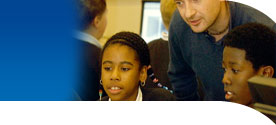



The revision of the key stage 3 programme of study provides an opportunity to review and refresh your sequences of work.
When reviewing planning across the key stage, developing new sequences of work or revising existing ones, you should consider the following.
The key concepts that underpin the study of mathematics should be taught through the key processes, using the range and content statements to provide the content contexts.
Planning requires an appreciation of the individual needs of pupils and the school's specific circumstances. Within this frame, teachers can now adopt a more holistic approach to curriculum planning, focusing on the processes of being mathematical, not on isolated skills, which can lack a sense of coherence and connection.
Departments should pay particular attention to continuity and progression for the pupils they teach, basing entitlement on understanding, not coverage, and on the key processes, not simply content. This involves considering how the key concepts will be integrated into teaching and learning across the key stage. For example: how will you give your pupils the opportunity to be creative? To achieve this, you might decide that you will offer tasks at particular points that allow multiple roots to a solution (open middle) and also include time to discuss different solutions, routes pupils have taken, and their strengths, weaknesses and elegance. Alternatively, you might decide to make time to draw out the ways in which pupils have been creative in their thinking and application of mathematics throughout the key stage.
Pupils can be taught the key processes through the range and content, revisiting the key processes at different points in the key stage, at each point increasing the level of demand. This may mean that when pupils learn and engage in the key processes in particular contexts, they may need to learn new content, or it might be necessary to call upon previously learnt content to support problem solving.
The two aspects of content and process are tightly bound, but it is the process skills that form the core of the revised programme of study, with the range and content being drawn upon to support this happening. This means that for some pupils, all or part of the range and content may not be appropriate and does not have to be taught, which allows greater flexibility in responding to the needs of the individual.
Key processes need to be seen and taught holistically, but this does not preclude taking opportunities to focus on one or more of the key processes at any one time. Although there is a sense of progression from representing to analysing to interpreting and evaluating, this is not the reality of most mathematical experiences that involve problem solving. When problem solving, we not only tend to cycle around the processes several times, but also move backwards and forwards between these stages as ideas mature, modify and change. This idea is reflected by the data handling cycle (below).

Schools are encouraged to provide curriculum opportunities that offer pupils experience of mathematics outside as well as inside the school environment. Inside school, departments should consider whether the application of mathematics in other subject areas is utilised in terms of its contribution to a pupil's whole experience of mathematics. Outside school, links can be made with local higher education institutions and businesses, as well as regional and national projects such as the Science, Engineering, Technology and Mathematics Network (SETNET) and the Millennium Mathematics Project (MMP).
Schools should be able to draw on the expertise and support offered by the Secondary National Strategy (SNS), professional associations and organisations such as the National Centre for Excellence in the Teaching of Mathematics (NCETM).